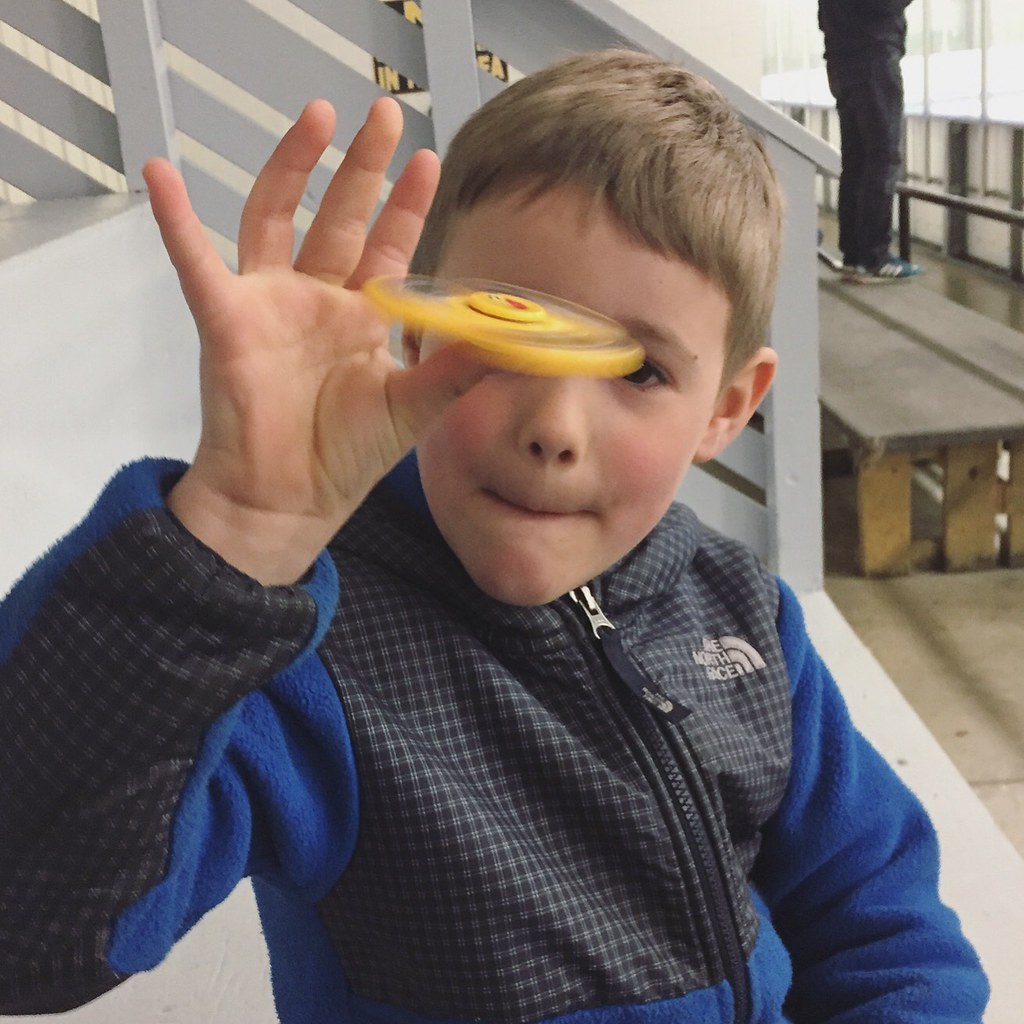 |
| photo via https://www.flickr.com/photos/meesterdickey/ |
The recent uproar about fidget spinners in schools has me reflecting about my recent post on the potential problems incurred by organizations that solve all of their problems through a strict adherence to the policy manual. While the United Airlines story was certainly an extreme case, I do think we miss out on some valuable opportunities when we just take a hardline approach and not engage in some constructive dialogue about other options.
While I am not sure how long the fidget-spinner fad will last, I do know that it will begin to fade at some point. I also know that there will be some new gadget or gizmo that will become the next hot item that our kids will want to have in their hands. Will we add that to our growing list of banned items or will we instead take the opportunity to have a constructive dialogue with our students.
When we jump to ban things, we fail to give our students credit for the fact that they are capable of discussing behavioral expectations. We send the message that we don't trust them and that we will need to step in to protect them from themselves. My experience has been to the contrary and I know that students can help us articulate how, when and where a fidget spinner or the next thingamabob should be used in the context of school. If we are wrong, we can always go to the ban as step two.
Missed Opportunities
It's funny, the first time I saw a fidget spinner was while walking through our middle school classrooms and one of the science teachers was making them with his students. He was excited to show me the spinner and talk about the science involved with his students. I wonder how many other science teachers took this opportunity?
A few weeks later, my 11-year old daughter purchased one at a local toy store and then we went home and looked on YouTube for some of the tricks that we could try with the spinner. It was fun to share that time with her and see what the kids were getting so excited about. As adults, I think it is important to get some firsthand experience with something before we make up our mind about it. We need to take an interest in their interests and not just brush them aside as trivial.
In the end, my daughter decided not to take hers to school because she did not see a time in her school day where the fidget spinner would be valuable to her. But the important thing was that she was able to make that decision for herself.
The best example of what can happen when we collaborate with our kids on things like spinners comes from the news segment below from Alabama where educators decided to build lesson plans around this item that has captured the attention of so many students. It is sad to me that the majority of headlines on fidget spinners were negative and that we did not see more schools and classrooms look at this as a chance to make meaningful connections with students.
Unless we are talking about a safety issue, we need to ensure that we are not invoking the centuries-old "ban reflex." Do we see problems first or opportunities?
WBRC FOX6 News - Birmingham, AL
No comments:
Post a Comment